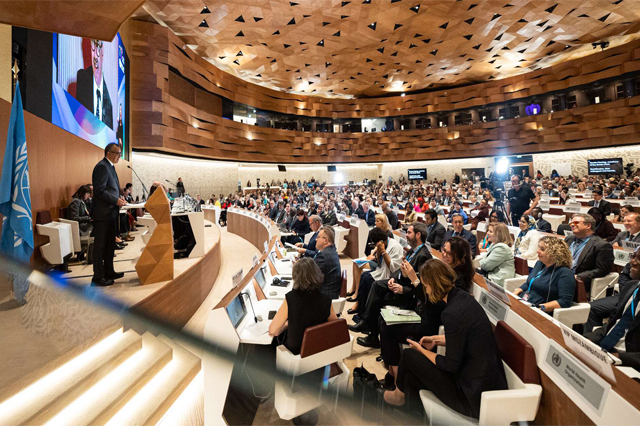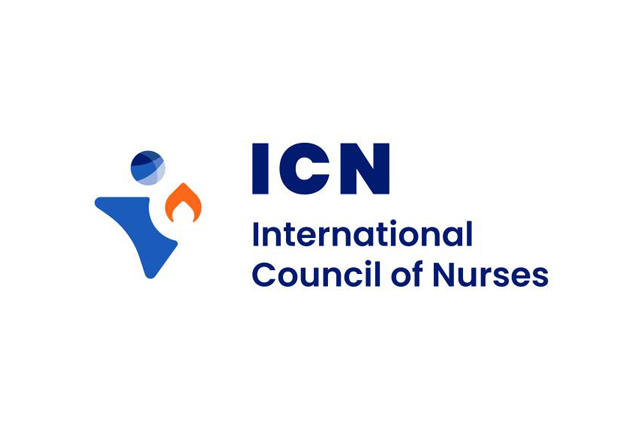The Seventy-seventh World Health Assembly (WHA) took place in Geneva, Switzerland, on 27 May – 1 June 2024. The theme of this year’s Health Assembly was: All for Health, Health for All.
The World Health Assembly is the decision-making body of the World Health Organization (WHO), the United Nations (UN) agency dedicated to promoting the global population's health and access to the highest levels of healthcare provision.
Thousands of government officials, global health experts, and advocates from around the world convened in Geneva for the WHA to deliberate, negotiate, and decide on the most pressing global health issues.
The International Council of Nurses (ICN) also participated and gave a set of statements:
Universal health coverage
ICN supports the letter to Ministers of Health signed by ICN President, newly appointed as Co-Chair of UHC2030 (the global movement to build stronger health systems for UHC), and urges Member States to adopt the resolution on social participation. Universal Health Coverage (UHC) will not be achieved without prioritizing equitable, diverse and inclusive participation by people in vulnerable and marginalized situations. ICN calls on governments to care for those billions of people most left behind. Nurses are essential to implement, strengthen and sustain regular and meaningful social participation in health-related decisions as they are the vital link to people and communities across the life course and are the spine of primary health care (PHC). ICN urges Member States to optimize and increase investments in education, employment and retention of the nursing workforce to achieve UHC.
Acceleration towards the Sustainable Development Goal (SDG) targets for maternal health and child mortality
The extremely limited reference to nurses in the draft resolution is regrettable as nurses make a significant contribution to reducing maternal, newborn and child mortality and achieving the related SDG targets. Nurses work closely with women and children throughout the life course, increasing equitable access to essential health care such as childhood immunization, voluntary family planning, and prevention and treatment of infectious diseases. To equitably scale-up high-quality newborn, child and adolescent health services and to strengthen community engagement and health promotion, ICN urges Member States to invest in the nursing workforce. ICN also strongly supports the implementation of a transformative PHC approach to move forward this agenda. We encourage stakeholders to collaborate with ICN and nurses on this important agenda that is central to nursing practice.
Global Health and Peace InitiativeICN supports WHO’s commitment to addressing underlying drivers of health needs in fragile, conflict-affected and vulnerable settings and recognizes the contribution of health programmes to this. Inequalities and social breakdown can lead not only to poor health, but to tensions and conflict in people’s lives and communities. Through its Nurses for Peace initiative, ICN has identified and promoted nursing roles that directly contribute to peace building. Nurses’ holistic approach to address root causes of ill health brings people together, building partnerships and relationships that are the foundations of health, community cohesion and peace. ICN also strongly condemns violence against health care and urges Member States under International Humanitarian Law to take immediate action to protect health personnel and infrastructure in conflict settings.
Climate change, pollution and health
As climate change is the single greatest health threat facing humanity, ICN welcomes the resolution on climate and health. The leadership and commitment of the health community is paramount to accelerating health-centered climate action to safeguard health and ICN calls on all members of this community to make climate action a priority. As the climate crisis exacerbates existing health and gender inequalities, policy interventions must target the connection between social, gender and health inequities, as well as environmental injustice, in accordance with the needs and perspectives of the communities they impact. Finally, when developing policies and programmes, ICN calls on governments to look to nursing associations and nurse leaders, educators and scientists who are leading large scale climate initiatives.
Economics and health for all
ICN strongly supports the WHO Council’s recommendation to treat health workers as a long-term investment not a short-term cost. ICN’s newly launched report on the Economic Power of Care shows that investing in nursing is an accelerator for global growth that could boost GDP by up to 8%. Elevating the nursing profession can catalyse transformative improvements in health care delivery, economic development, peace and societal well-being. Furthermore, achieving effective UHC is heavily reliant on investing in nursing to meet the required 70 nurses per 10,000 population, a number many countries are far from. As countries rebuild and strengthen health systems and economies, strategic investment in nursing emerges as a pivotal pathway to achieving sustained growth and resilience.

